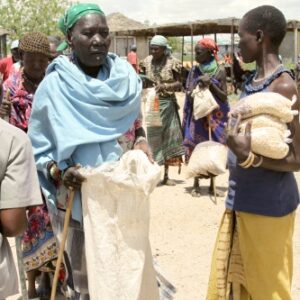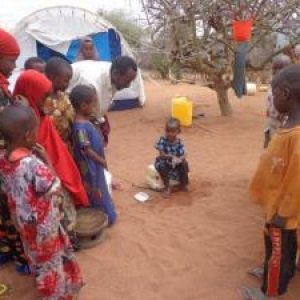Currently around 4.1 million people in Kenya are food-insecure and in need of humanitarian assistance. This is a 17 per cent rise since May of this year. Child malnutrition has also risen around 50 per cent in the last three months to 942,000. There are grave concerns the country will also experience a fifth consecutive ...

Address: Caritas Kenya, New Waumini House, Westlands, Ground Floor, Nairobi, Kenya
Postal Address: Caritas Kenya, P.O. Box 13475 – 00800, Nairobi, Kenya
Telephone: +254 020 444 3133/4/5 and +254 020 444 3906 / 17
Fax: +254 020 444 2910 / +254 020 4441758
Email: [email protected]/[email protected]
Facebook: CaritasKenyaOfficialPage Twitter: Caritas_Kenya
www.caritaskenya.org
Caritas Kenya is the development and humanitarian arm of the Kenya Conference of Catholic Bishops (KCCB). It was established in 1973 as the Development and Social Services arm of the Kenya Episcopal Conference now known as the KCCB. Caritas Kenya was later launched on November 2012 and has presence in 25 Catholic Dioceses spread across the 47 Counties in Kenya. Averagely, all the 25 Diocesan Caritas hosts over 350 staff members country wide.
Caritas Kenya works closely with the most poor and vulnerable population in the urban and peri-urban, rural and marginalised Kenyan lands.
Its main challenges remain rampant poverty, frequent disaster occurrences and climate change effects, lack of critical resources (water and food shortage), increasing inequalities and HIV/AIDS Pandemic.
Running programmes:
- Humanitarian Programme: The programme establishes and maintains an efficient and coordinated system for managing natural or man-made disasters. Caritas Kenya has been actively involved in monitoring of the drought situation in the country. There are 13 arid and semi-arid lands (ASAL) counties in alarm drought phase with the situation rapidly deteriorating in several counties.
- Livelihoods Programme: Develops poverty reduction strategies to empower Kenyans towards self-sustenance in all areas. The programme deals with food security, microfinance and environmental conservation as key areas of intervention. It also oversees the implementation of water sanitation and hygiene (WASH) activities, in order to promote sanitation and hygiene practices that will ensure the optimal development and use of water and water facilities.
- Gender and Development Programme: The programme promotes empowerment in men and women and facilitates equal participation and opportunity especially among the poor and vulnerable men and women in Kenya.
- Capacity Building’ Programme: The programme seeks to promote efficiency and effectiveness of Caritas Kenya as it carries out her mandate while working with her partners both at the international and diocesan level.
- Research, Communications and Advocacy Programme: the programme is engaging on SDGs advocacy, mainstreaming and implementation. In addtion, Caritas Kenya is active in the ongoing global dialogues/forums on Climate Change in partnership with CIMOs, the Government, Development organization’s and UN agencies
Caritas Kenya works with other members of the Caritas confederation, government ministries and also with other national and international non-governmental organisations within and outside the country.
Updates from Kenya
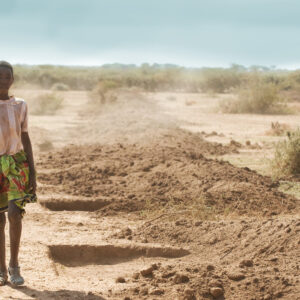
With the close of the 50th Session of the Human Rights Council in Geneva this month, Caritas Internationalis is urging international and local leaders to take action in responding to the severe food insecurity in the Horn of Africa and the Sahel regions. The right to food is a basic human right and the implementation ...
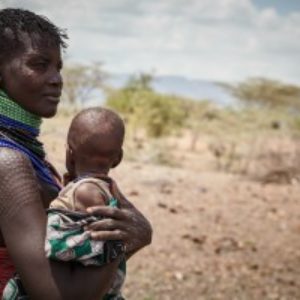
East Africa and the Horn of Africa are confronting a humanitarian crisis that may worsen in 2018. Armed conflict and severe drought are causing extreme levels of hunger. Up to 35 million people are in need of urgent food assistance across the region.
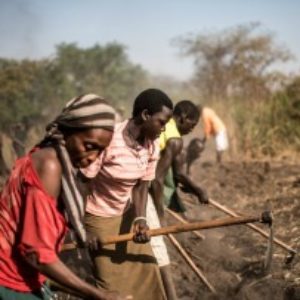
East Africa faces a massive humanitarian crisis. It threatens the lives and livelihoods of millions of people. Severe drought and violent conflict fuel food insecurity. Caritas is striving to respond to enormous challenges across the region. Somalia, Ethiopia, Kenya, Uganda and South Sudan are suffering from severe drought. Areas such as central and southern Somalia ...
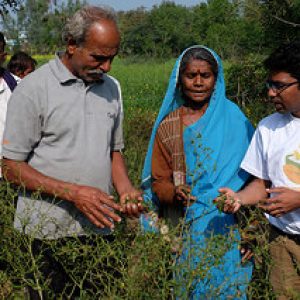
Towards the end of September, the Sustainable Development Goals (SDGs) will be adopted by member states at the United Nations General Assembly in New York. These goals will set the tone and direction for development and aid over the next 15 years.
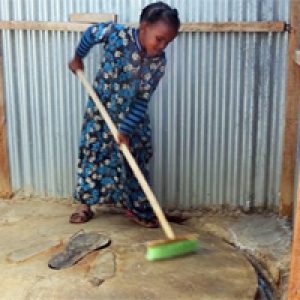
Caritas confederation member organisations funded a project aimed to improve sanitation and hygiene in Kambioos camp
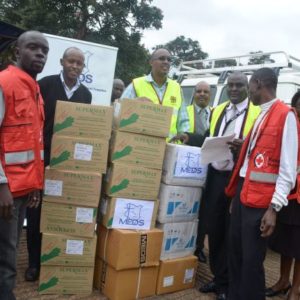
The Catholic Church has urged Kenyans to give donations to help victims and their families through this difficult and trying moments. Caritas Kenya responded immediately by donating 1,000 blood bags, 10,000 gloves, soft drinks, glucose and crates of bread to assist many Kenyans who responded to the call to donate blood at Uhuru Park.
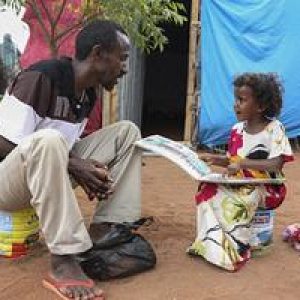
Caritas Internationalis has launched two appeals for Somali refugees living near Dadaab in Kenya since 2011. In Kambioos, Caritas works through its American member CRS to provide training on hygiene and better sanitation.
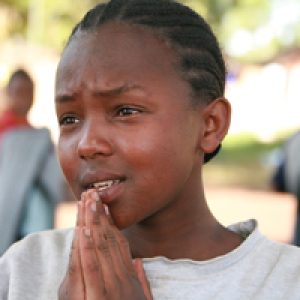
Caritas in Kenya has laid the groundwork to respond in the event that violence erupts during presidential elections next week.
Caritas Africa Info
- Angola
- Benin
- Botswana
- Burkina Faso
- Burundi
- Cameroon
- Cape Verde
- Central African Republic
- Chad
- Comoros
- Congo Republic
- Congo (DRC)
- Cote D’Ivoire
- Equatorial Guinea
- Eritrea
- Ethiopia
- Guinea
- Gabon
- Gambia
- Ghana
- Guinea-Bissau
- Kenya
- Lesotho
- Liberia
- Madagascar
- Malawi
- Mali
- Mauritius
- Mozambique
- Namibia
- Niger
- Nigeria
- Rwanda
- São Tomé and Príncipe
- Senegal
- Seychelles
- Sierra Leone
- South Africa
- South Sudan
- Sudan
- Swaziland
- Tanzania
- Togo
- Uganda
- Zambia
- Zimbabwe

